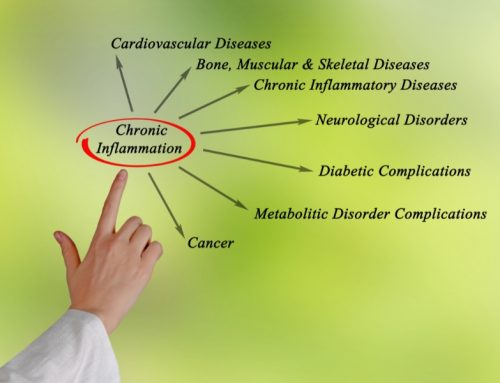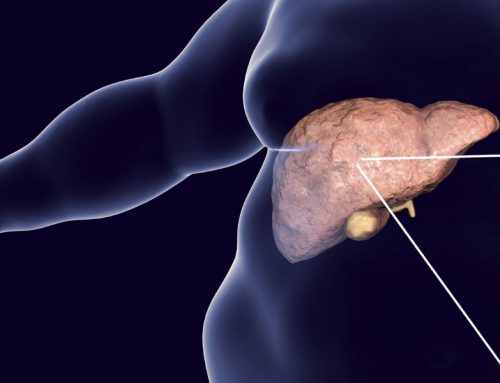Coenzyme Q10 protects. Herewith summaries of 2020-2021 meta-analyses of randomized controlled trials of Coenzyme Q10 supplementation for protection against oxidative stress and chronic inflammation. Note: A meta-analysis is a specific procedure for the pooling and evaluating of data from many individual studies for the purpose of getting more precise results.
CoQ10 and Protection Against Oxidative Stress
Hajiluian et al. investigated the antioxidant effect of CoQ10 supplementation in an analysis of 17 randomized controlled trials enrolling 972 participants. The aggregated data showed that CoQ10 supplementation is associated significantly with increased serum total antioxidant capacity, with increased superoxide dismutase levels, and with decreased malondialdehyde levels compared to the placebo group. The researchers concluded that CoQ10 supplementation improves antioxidant protection against oxidative damage caused by reactive oxygen species.
Akbari et al. investigated the antioxidant effects of CoQ10 supplementation in an analysis of 17randomized clinical trials enrolling 963 participants. They found that CoQ10 supplementation was associated significantly with a decrease in malondialdehyde levels and with increases in total antioxidant capacity and superoxide dismutase activity.
Sangsefidi et al. investigated the antioxidant effect of CoQ10 supplementation in an analysis of 21 randomized controlled trials enrolling 1,170 participants (614 participants in the intervention groups and 556 in the placebo groups). They found that the CoQ10 supplementation significantly increased the levels of total antioxidant capacity, glutathione peroxidase, superoxide dismutase, and catalase and significantly reduced the levels of malondialdehyde.
Definitions
- Total antioxidant capacity: various spectrophotometric methods are used to evaluate the antioxidant response against the free radicals.
- Superoxide dismutase: an antioxidant enzyme that catalyzes the breakdown of harmful oxygen molecules in cells.
- Glutathione peroxidase: the name of a family of selenium containing selenoproteins that protect against oxidative damage.
- Catalase: an antioxidant enzyme that catalyzes the reduction of the radical hydrogen peroxide.
- Malondialdehyde: a highly reactive by-product of lipid peroxidation and a bio-marker for oxidative stress.
CoenzymeQ10 and Protection Against Systemic Inflammation
Dludla et al. [2020, May] investigated the effect of CoQ10 supplementation on systemic inflammation in six randomized controlled trials enrolling 318 participants. The analysis of the pooled data showed that CoQ10 supplementation significantly lowered bio-markers of inflammation in individuals with metabolic syndrome as compared to individuals with metabolic syndrome on placebo.
- Metabolic syndrome: the medical term for a combination of diabetes, high blood pressure, and obesity, which increases the risk of coronary heart disease, stroke, and other disorders involving the blood vessels.
Coenzyme Q10 and Protection in Diabetic and Metabolic Syndrome Patients
Dludla et al. [2020, March] also investigated the effect of CoQ10 supplementation in patients diagnosed with diabetes or metabolic syndrome in 12 randomized controlled studies enrolling 650 patients. They found that the CoQ10 supplementation significantly reduced cardiovascular disease-risk-related indexes such as total cholesterol and low-density lipoprotein levels in diabetic patients as compared to diabetic patients on placebo.
Conclusion: Coenzyme Q10 Supplements Against Inflammation
- Not all CoQ10 supplements are equally well made and equally well absorbed and effective. It is important to choose a well-documented CoQ10 supplement. Otherwise, the money spent on the supplement may be wasted. The cheaper the supplement is, the more likely this is true.
- A well-formulated ubiquinone Coenzyme Q10 supplement will significantly increase the blood concentration of the ubiquinol form of Coenzyme Q10. It is not necessary to take a ubiquinol supplement in order to get enough ubiquinol.
- Coenzyme Q10 supplementation has significantly improved symptoms and survival in chronic heart failure patients (Q-Symbio Study) and significantly reduced cardiovascular mortality and improved heart function in community living senior citizens (KiSel-10 Study). Reduction of oxidative stress and systemic inflammation may be biological mechanisms that contributed to the positive clinical outcomes in these studies.
Sources
Akbari A, Mobini GR, Agah S, Morvaridzadeh M, Omidi A, Potter E, Fazelian S, Ardehali SH, Daneshzad E, Dehghani S. Coenzyme Q10 supplementation and oxidative stress parameters: a systematic review and meta-analysis of clinical trials. Eur J Clin Pharmacol. 2020 Nov;76(11):1483-1499.
Dludla PV, Orlando P, Silvestri S, Marcheggiani F, Cirilli I, Nyambuya TM, Mxinwa V, Mokgalaboni K, Nkambule BB, Johnson R, MazibukoMbeje SE, Muller CJF, Louw J, Tiano L. Coenzyme Q10 Supplementation Improves Adipokine Levels and Alleviates Inflammation and Lipid Peroxidation in Conditions of Metabolic Syndrome: A Meta-Analysis of Randomized Controlled Trials. Int J Mol Sci. 2020 May 4;21(9):3247.
Dludla PV, Nyambuya TM, Orlando P, Silvestri S, Mxinwa V, Mokgalaboni K, Nkambule BB, Louw J, Muller CJF, Tiano L. The impact of coenzyme Q10 on metabolic and cardiovascular disease profiles in diabetic patients: A systematic review and meta-analysis of randomized controlled trials. Endocrinol Diabetes Metab. 2020 Mar 14;3(2):e00118.
Hajiluian G, Heshmati J, Jafari Karegar S, Sepidarkish M, Shokri A, Shidfar F. Diabetes, Age, and Duration of Supplementation Subgroup Analysis for the Effect of Coenzyme Q10 on Oxidative Stress: A Systematic Review and Meta-Analysis. Complement Med Res. 2021 Apr 16:1-14.
Sangsefidi ZS, Yaghoubi F, Hajiahmadi S, Hosseinzadeh M. The effect of coenzyme Q10 supplementation on oxidative stress: A systematic review and meta-analysis of randomized controlled clinical trials. Food Sci Nutr. 2020 Mar 19;8(4):1766-1776.
The information presented in this review article is not intended as medical advice and should not be used as such.
15 August 2021








Dr. Morrill,
Can you please tell me how much COQ10 i should take daily? On my own, with no guidance, I am taking it twice daily. 200 mg in the AM and 200 mg in the PM.
My HS CRP was greater than 10 (which my primary said the inflamation in my body was off the charts). My cholesterol numbers are all in the red (my triglycrtides were 433), my thyroid was off also. I’ve also been showing signs of a slight infection on my lab tests. Ive had a sudden onset of jount pain for 2 months now that just doesnt want to ease up. I can not take statins (I’ve tried most of them), or any of the 3 thyroid medications because of severe side effects.
Here is the kicker, I’ve had one doctor say that my EKG was that of an 18 year old, and I recently had a heart CT scan. My cardiologist said, in his career he’s not seen such little plaque on a woman of my age (I’m 66). He litetally had to go back to see if perhaps the testers made a mistake!
I would really appreciate your guidance on how much COQ10 I should take daily since I was told it could help with inflamation. Thank you and I look forward to your response.
Dear Debra –
Please keep in mind that I am not a medical doctor and do not give medical advice.
200 mg in the morning and 200 mg in the evening seems to be fine if you are taking the Coenzyme Q10 together with meals that contain some fat.
Otherwise, yogurt and peanut butter are good to accompany the Coenzyme Q10. You know that Coenzyme Q10 is very hydrophobic and needs help to get through the water phase of the small intestines to the enterocytes.
In your place, I might take 100 mg in the morning, 100 mg at noon, and 100 mg with the evening meal.
2 times 100 mg will give a better uptake than 1 times 200 mg.
Source = Singh RB, Niaz MA, Kumar A, Sindberg CD, Moesgaard S, Littarru GP. Effect on absorption and oxidative stress of different oral Coenzyme Q10 dosages and intake strategy in healthy men. Biofactors. 2005;25(1-4):219-24.
Your good heart health would seem to indicate that 300 mg/day is sufficient.
The important thing is, of course, to take a CoQ10 supplement for which there is solid scientific evidence of absorption and bioavailability. There is much variability in commercially available CoQ10 products, and the formulation is so very important. By formulation, I mean the choice of the carrier lipids in the capsule and the heating/cooling process used.
Sources =
López-Lluch G, Del Pozo-Cruz J, Sánchez-Cuesta A, Cortés-Rodríguez AB, Navas P. Bioavailability of coenzyme Q10 supplements depends on carrier lipids and solubilization. Nutrition. 2019 Jan;57:133-140.
Mantle D, Dybring A. Bioavailability of Coenzyme Q10: An Overview of the Absorption Process and Subsequent Metabolism. Antioxidants (Basel). 2020 May 5;9(5):386.
Best regards,
Richard